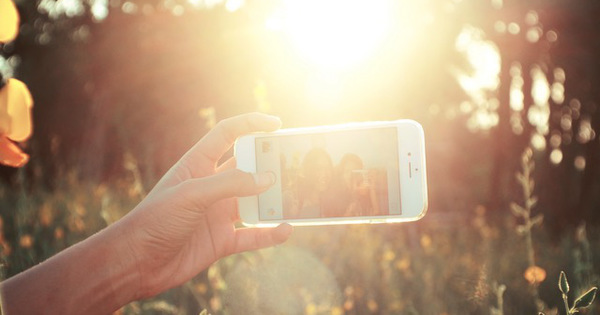Bad news for meme aficionados: the controversial Article 13 has been approved by the European Parliament. Websites such as Facebook and YouTube thus become responsible for the content that their users place on the platform. And that has serious consequences for even a simple gif or music under your video. What exactly is going to happen?
There are clear rules for using music or video images that are copyrighted. In short: you can't just use that. There are some rules that offer possibilities, such as the fact that you are based on fair use may use a few seconds of image or sound to illustrate something. You may also use material to create satire. LuckyTV does that for example. But with those few exceptions, you shouldn't do much with someone else's footage — even if you're making videos for yourself and posting them online.
In practice, nobody will make a big problem of it if there is a slightly longer music under your home video that is only viewed by a few people. Although copyright applies, in most cases protection is meant for the big boys: pirates who put music and movies on download sites, or who put other people's music on YouTube and try to monetize it with advertisements.
Protect copyright
That is of course not crazy. There are thousands of creatives who earn their money with online video streams, texts, photos, comics... Who want to be protected against stealing their content.
To this end, a new European directive has now been adopted that ensures that the unauthorized redistribution of content is stopped. But the way this is done is rather vague, and both large companies and individual creatives are questioning its effectiveness.
What is Article 13?
Let's start with a short how-to. Last week, the European Parliament voted in favor of a rather sweeping law that would make online platforms liable for removing copyrighted material.
The law is officially calledEuropean Directive on Copyright in the Digital Single Market'. It consists of 17 separate parts that make it easier to better protect copyrighted material. That law is not entirely new. It is a modified version of existing regulations, so that the law fits better with the modern internet.
Pre-Scanning Material
Currently, major platforms where users can upload their content are not responsible for copyright violations. They must remove such material if the makers ask, but they are not obliged to do anything as a preventive measure.
Article 13 changes that. This means that major platforms such as YouTube, Soundcloud, Reddit, Facebook or Tumblr are obliged to pre-scan material that is uploaded: is there something that is (possibly) copyrighted in this video, comic, text or other work?
Unclear future
Although the law is intended to protect content creators, it also has many drawbacks. And not only for large internet platforms, but also for ordinary internet users themselves.
The biggest obstacle: nobody knows exactly how to stop it. For example, an early draft of the law required platforms to use “proportional content recognition technology,” but no one could agree on what that means.
Article 13 is also known as meme banmeme ban
That is why Article 13 is also known as the 'meme ban'. Memes often arise from photos or comics that are copyrighted. If platforms implement Article 13 soon, that may mean that every meme you post on Facebook or Instagram or Reddit will be automatically removed by the upload filter. Even if there is actually an exception for your image due to satire. This restricts someone's freedom of expression.
The same can happen if you put the aforementioned family video online, for example. Whether you set it private or public, no one will make a big deal out of it if it contains some copyrighted music. Such a video does not stand out among the billions of hours of video that are uploaded to YouTube every hour, so the chance that an artist will get angry about your one video with a few views is small.

Algorithms
But if Article 13 is in force, that may change. YouTube throws its algorithms loose on every new upload, and then a music with copyright is automatically recognized. And the next step: it is removed.
Perhaps you can still reason that deliberately adding music to a video is indeed not allowed. But what about, for example, if you play games on Twitch and you just have your music playing in the background? A good algorithm filters that out and can block a stream just like that.
Preventive blocking
There are plenty of examples where large companies incorrectly remove art from their platforms because the algorithms are a bit too aggressive in recognizing, for example, nude images. YouTube, which actually already has such a filter with Content ID, also regularly receives negative news, because abuse is made by parties who (wrongly) claim copyright.
It is therefore not an unjustified question how Facebook, YouTube or other platforms deal with copyrighted material. Certainly if a platform is (financially) responsible for protecting such images, they may be more inclined to opt for an approach that is too aggressive than too mild.
No more competition from small businesses
Competition (or lack thereof) is also a potential problem. Platforms such as YouTube, which have billions of euros available, can still set an upload filter. Well, it might cost them a bit, but at least they're working according to the law. But what if a new platform emerges that wants to compete with YouTube? That makes it a lot harder.
For example, for an upload filter you need gigantic databases to which you can reference uploads, or you have to develop algorithms that make use of artificial intelligence and machine learning. It is not for nothing that it is now mainly large companies such as Google and Facebook that are experimenting with the latter; for small businesses such a thing is way too expensive.
A new version of the law does state that 'the pressure for small and medium-sized companies should not become too great', but it is also not entirely certain what that means in practice.
Article 13 makes it very difficult to compete with platforms like YouTubeYouTube as the winner
YouTube may be one of the biggest opponents of the law, but chances are they are the smiling third in this battle. YouTube is one of the few platforms that has the money and resources to (successfully) implement such a measure. So there's a good chance that content creators will be even more tied to such large platforms, and the relationship between them is already under pressure. Do you really want the creatives of the internet to be dependent on one company in the future? And as a viewer you will soon be left with little choice. Then you should stick to a platform that earns a lot of money from your viewing behavior. Not only makers, but also viewers suffer from a weak competitive position.
Ifs and buts
We use the word "maybe" quite often above. And with good reason, because that's where the whole problem of Article 13 lies. Nobody knows how that works. Nobody dares to predict exactly what platforms should do, and what they will do. It is plausible that a lot of preventive filtering is done to prevent copyright infringement. Bits of Freedom warns that this has major consequences for your freedom to communicate.
Formality
Article 13 still has to be approved by the Council of Ministers, but it does not appear that it will throw a spanner in the works. That's how the meme ban really comes into effect. It remains to be seen to what extent it will actually be implemented, but it is likely that you will no longer be able to put a funny picture on your Facebook timeline so easily.

